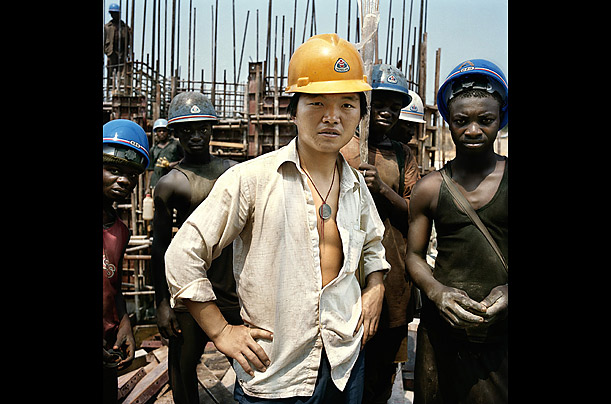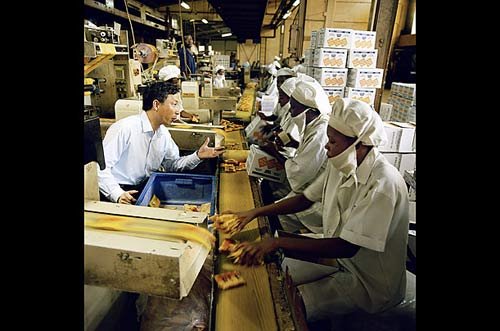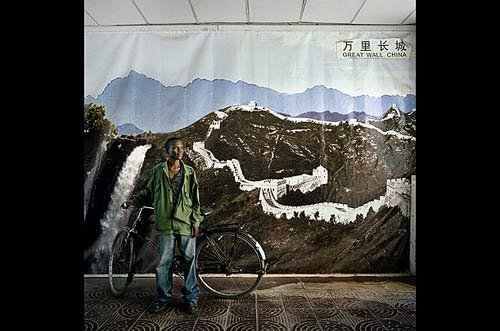
-- Globalization of "Race to the bottom"
Conflict happened again between the local people and Chinese people abroad. In Algeria, some people accused Chinese people of not respecting local religion and culture, while others blamed Chinese for breaking the rice bowl of local people. In the past, the direct investment flooded to China because of the lower land and labour cost and loose environmental rules. This makes China not only the World Factory, but also pay for the heavy social cost of labour and environment.
Nowadays, China herself accumulated capital and urgently looked for places of even lower labour and social costs. However, not only the local people and environment in Africa and Latin America lost their voices amid the Chinese investment abroad, but also the Chinese workers who contributed large amount of labour forces. The Chinese workers are delicately situated between the Chinese capital out-flow and the clash of civilization with the local people. The voice of Chinese workers are now overwhelmed by the discourse of national development and patriotism. Their real voices are never heard.

In the past century, the stories of Chinese labour overseas migrations and their struggle for better life are still being applied, but their situation has been drastically changed. With China's rise, Chinese capitals are looking for opportunities abroad in infrastructure development and resources exploitation, in order to secure a steady annual economic growth of 8% (Bao Ba), which now becomes the goal of the whole country. However, Chinese companies ignore the lessons during the 1950s and 1960s, such as the blind development of steel and the Starvation period, and therefore the environmental impacts during the mining exploration.
Chinese companies, which ingore the poor working condition of the domestic metal mines, have begun exploring new mines in Africa, in order to meet with the growing order for commodities. This added the cost of death and injury to the Chinese products.

China's Going Global initiative brings much labour force to the developing countries. Many Chinese workers become the development pioneers in those countries. They are facing very harsh, complicated ecological and social environment, such as the weird animals, humid weather and armed forces in Burma's jungles, or the Taliban military force in Pakistan. It seems the Chinese workers never complain about such condition for the sake of higher than domestic salary. If Chinese workers are highly conscious of the protection that they deserve in working environment, they should at least protest against the companies' management, and fight for fairer and safer employment conditions.
Chinese workers, equipped with better training and working morale, normally accept lower pay. They have replaced the dam workers in Belize and occupied the management level in Mozambique's water supply projects. However, Chinese workers also face resistance from the local people, and even kidnapped by the local terrorists. Do the Chinese workers deserve this? Obviously not. While Chinese investors are making big money abroad, using the labour of Chinese workers, they should take the social responisiblity into consideration, and transfer the technology to the local workers. They should also prevent the hugh environment and social costs incurred by their development projects.

The core of globalization lies in the free captial flow. After the financial crisis, the developed countries have already reflected the regulation on capital flow. However, Chinese capital did not stop, and continue to expand. The lessons from the Shanghai Motor's acquisition of Korea's Ssangyong Motor, which led to much serious conflicts with workers, bring the company to the verge of bankruptcy. But there is no sign of Chinese companies on reflecting such acquisition.
In the era of free capital flow, globalization of "race to the bottom" has become the main symptom, wherever inside or outside China. Chinese workers who follow the Going Global initiative lost their real voice under the dominance of patriotism and liberalism. In order to eliminate the impacts of "race to the bottom", perhaps we should start thinking of the Chinese workers abroad on the ground and derive the solutions to today's globalization.
